In a bid to head off growing anger among Pacific Brands workers and throughout the working class over the clothing company's destruction of 2,700 jobs, the Rudd government and the textile union held talks behind closed doors with the company in Melbourne yesterday.
No details were released of the negotiations, but they will almost certainly involve the union offering to make further cuts to workers' conditions as the price for retaining a reduced number of Australian jobs. Neither the government nor the unions has any concern about the jobs of the workers in China who are also facing retrenchment. Industry Minister Kim Carr told journalists he was "seeking to determine whether it is possible for Pacific Brands to maintain manufacturing jobs and capacity in Australia". Both the company and the union had agreed to "come back to me with further information".
Pacific Brands, an Australian-based transnational with operations in New Zealand, United Kingdom, Malaysia, China and Indonesia, announced on Wednesday that it was closing nearly all its factories, including one in China. The company revealed a half-year loss of $149.95 million, after writing off of about $200 million in non-cash assets.
In a cost-cutting restructuring operation dictated by a syndicate of banks, the company will outsource all its garment making, which is already 70 percent performed by contractors. Seven factories will be shut down in Australia—two in Melbourne, and one each in Sydney, Wollongong, Cessnock and Brisbane—with the loss of 1,200 jobs, on top of the 850 jobs destroyed in China, and another 650 office jobs internationally.
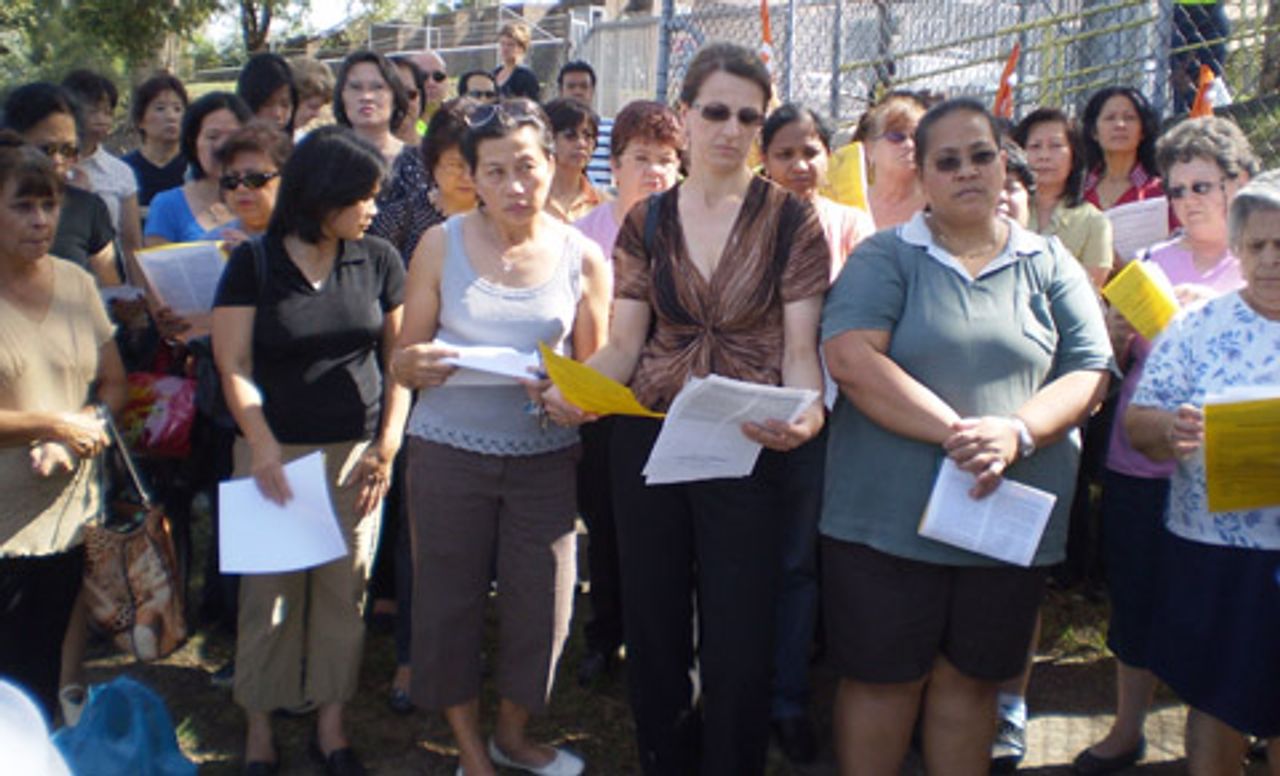 Workers outside the Bonds plant in Wentworthville
Workers outside the Bonds plant in Wentworthville
As soon as the news was announced, the Textile Clothing and Footwear Union (TCFU) national secretary Michele O'Neil appealed for "urgent discussions" with the company and the government about ways of preventing the "complete closure" of the Australian sites. Her plea effectively ruled out any fight for a united campaign to defend all jobs, involving Pacific Brands workers in Australia and other countries, along with other sections of the working class facing jobs cuts and closures. Like its counterparts in the car industry, and in aviation, the public service and elsewhere, the union is preparing to collaborate in an "orderly closure", in exchange for the company maintaining a few employees in Australia on lower pay and conditions.
At factory gate meetings yesterday, Pacific Brands workers were given a brief list of demands drawn up by the union—all of which assume that jobs will be destroyed. The items include a trust fund for all entitlements, the payment of early entitlements if workers find alternative employment, and access to government benefits and retraining programs immediately upon termination.
The final demand reads: "No terminations until all alternatives have been explored in full." Workers who gathered yesterday were given no information about what these "alternatives" might be, but the union has a 35-year record of offering concessions on jobs, wages, working hours and other conditions. Over that period, employment in the Australian clothing, textile and footwear industry has halved, from 104,800 to 42,800, according to Australian Bureau of Statistics data.
Outrage over the job losses has been fuelled by revelations that executives at Pacific Brands scored pay rises of up to 170 percent last year, with the total remuneration for 13 directors more than doubling from just over $7 million to $15.5 million, despite a 45 percent fall in the share price in the six months leading up to the pay deals.
Former chief executive Paul Moore was paid $5.8 million when he retired in January last year, and collected a salary of $1.5 million—a 25 percent rise from the year before, despite leaving halfway through the financial year. Current CEO Sue Morphet, who took over from Moore last year, collected $1.86 million in 2007-08.
By contrast, the company is estimating its redundancy costs at about $100 million, indicating an average payout of less than $55,000 for each worker. Under its enterprise agreement with the TCFU, workers are entitled to only three weeks pay per year of service, with a 25 percent top-up for those over 45 years of age.
There was further anger when Industry Minister Carr admitted that the company, which has been handed about $17 million in government subsidies over the past two years, will be entitled to another $8 million or $9 million this financial year under the Textile, Clothing and Footwear Post-2005 Strategic Investment Program Scheme.
The Transport Workers Union, Maritime Union of Australia and the Rail Tram and Bus Union announced yesterday that they would block any attempts to move company machinery to Bangladesh, although Pacific Brands denied it planned such a move.
Industrial Relations Minister Julia Gillard immediately intervened, warning that any such black-bans could constitute a secondary boycott in contravention of the Trade Practices Act, exposing unions to fines of up to $750,000. "While the government can understand the disappointment with Pacific Brands and shares the concerns for the retrenched employees, it does not condone unlawful behaviour," she said.
Gillard's threat underlined the Rudd government's commitment to retaining the anti-strike provisions of the previous Howard government's WorkChoices legislation. Her comments typified the government's reaction to the Pacific Brands announcement—voicing sympathy for the workers but seeking to prevent any industrial action that could spark a wider movement against the destruction of jobs as the global economic crisis worsens.
In a similar vein, Treasurer Wayne Swan expressed concern at the Pacific Brands executive pay rates but kept silent about the fact that the Rudd government has handed over hundreds of millions of dollars to assist and guarantee the deposits of the same banks that are driving the carve-up of the company—Westpac, the Commonwealth Bank, National Australia Bank, ANZ Bank—along with HSBC.
Wentworthville
The Rudd government's anxiety to head off any resistance by Pacific Brands workers was on display yesterday at the Wentworthville factory gate meeting in western Sydney. Female workers peppered local Labor MP Julie Owens with questions after she attempted to convince them that she and the government would "take care of you".
Owens said she was "so sorry" about the retrenchments but said, "I can't keep the factory open". She outlined government measures to provide unemployment benefits and "job search" programs, arguing contemptuously that the $900 tax rebate payments from the government's $42 billion stimulus package "might help tide you over". She urged the workers to "take whatever is good in this, and make it work".
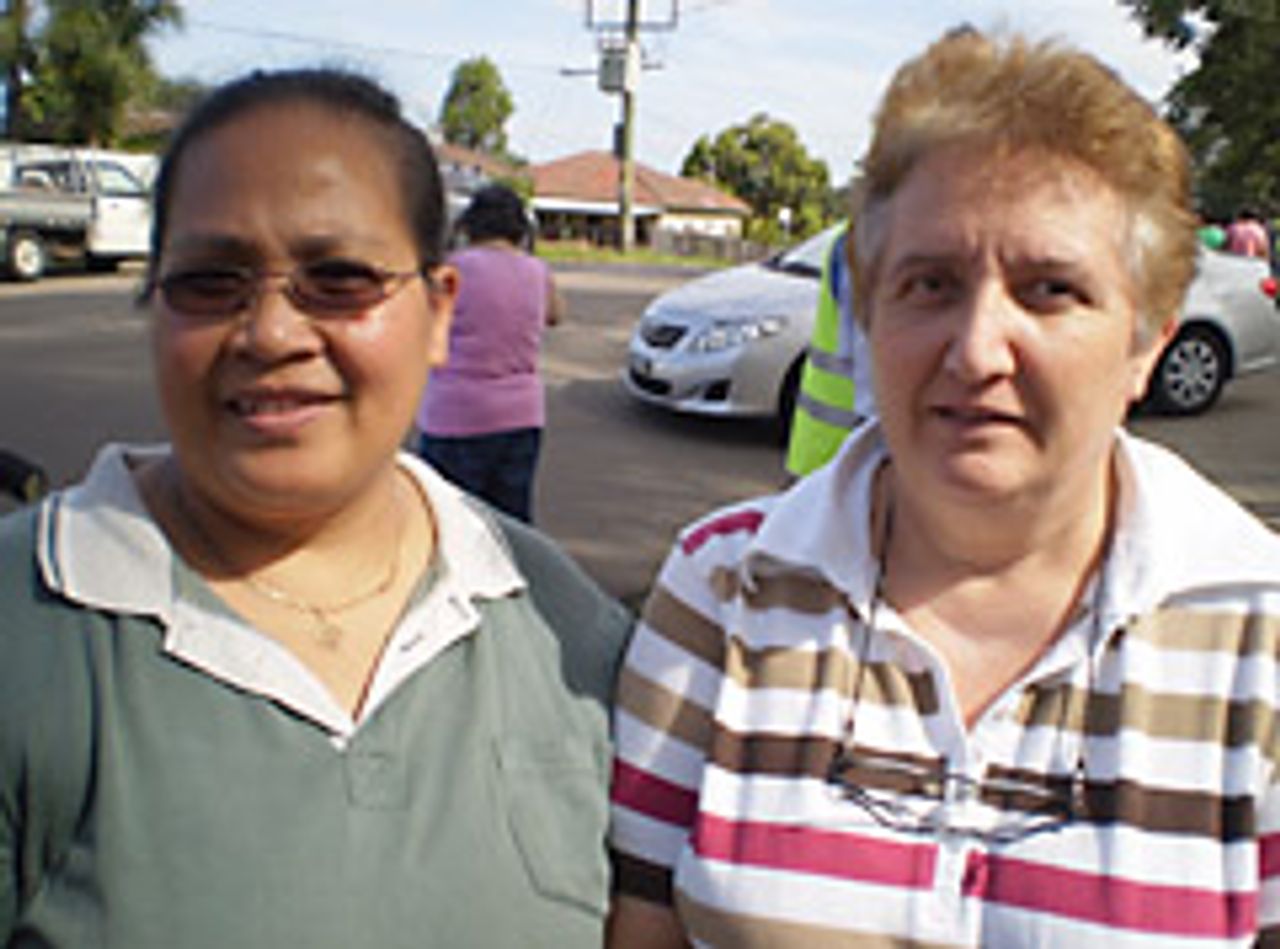 Merilou Orland and Rita Camilleri
Merilou Orland and Rita CamilleriA machinist, Merilou Orland, challenged Owens: "If we lose this job, where are we going to go? Me and my husband don't make $80,000 a year between us. How are we going to pay our mortgage and bills?" Owens had no answer, except to claim that Centrelink, the government's welfare payments agency, would "be there for you".
Speaking to the WSWS after the exchange with Owens, Orland said: "I've still got two children at school, and two who have finished. We have a mortgage to pay and insurance—all up $2,000 a month. Where are we going to get the money? I'm earning only $30,000 and my husband $45,000. We are struggling as it is. It is going to be more difficult."
Asked to comment on Owens's statement that workers should be happy with "stimulus" payments and training programs, Orland asked rhetorically: "What help is that? Where are the jobs going to be? I'm already over 40. No one will employ us."
Orland was disgusted by the role of the banks and their bailout by the Rudd government. "Are they [the banks] going to help us? What have they promised the government? That they will help us? I don't think so!
"Where is that money now? It's a big question. My children will be struggling for things that they need, and they will be asking. What am I going to tell them? I just can't understand things anymore."
When it was suggested that the banks should be nationalised under workers' control, she said: "We wish; why not? I may not be good at managing things, but I am good at my job. We are all multi-skilled here, but where are we going to get a job? There's nothing."
Another worker, Rita Camilleri, commented on the salary of CEO Sue Morphet: "It stinks. She is a millionaire. With this global financial crisis all the factories are closing. Who is going to take us? No-one!" Camilleri also denounced the banks. "The banks are greedy, greedy. Everything we have they take. How can this happen? There will be no jobs for the little ones."
A discussion followed with a group of about a dozen female workers—all immigrants from different parts of the world—on the global economic crash and the fact that millions were being thrown out of work internationally, including in China, where more than 20 million workers had already lost their jobs this year. Camilleri observed that the Chinese workers were "maybe doing the same as us—fighting for their jobs."
Cessnock
Outside the factory at Cessnock in the Hunter Valley, one incensed worker asked the local Labor MP, Defence Minister Joel Fitzgibbon, why the government was not "taking over" the factories to defend the jobs. Like Owens, Fitzgibbon made a flying visit to the plant in an obvious exercise to hose down opposition. He revealed that the Rudd government had offered extra assistance to the company, which had refused it. "I know this is not what you want to hear, but the government is doing all it can," he told workers. "We have put in place stimulus packages to get the economy moving."
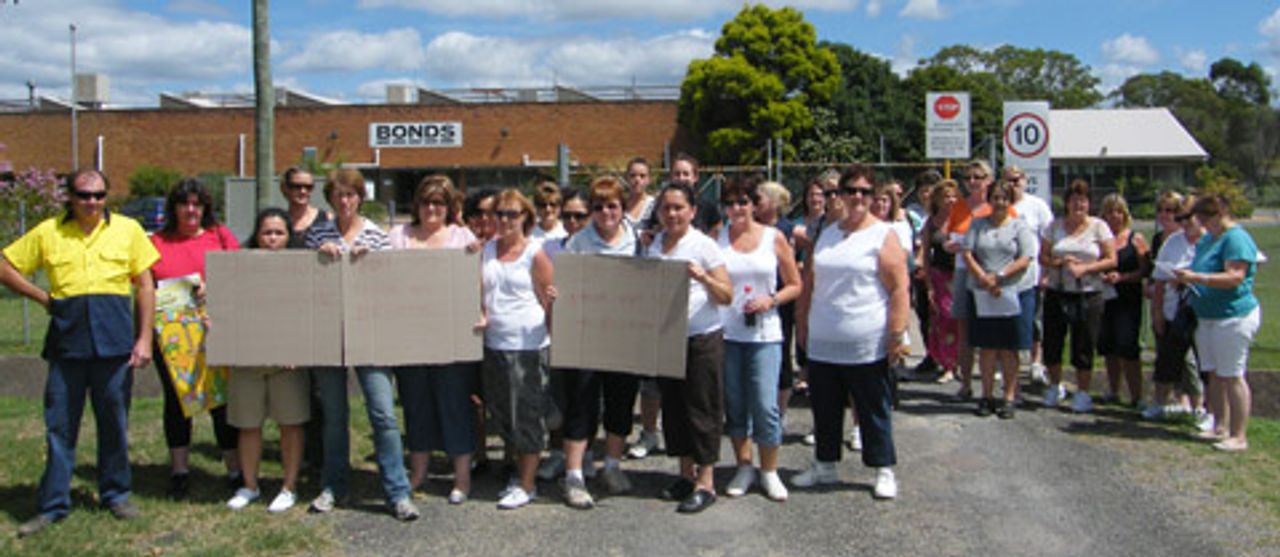 Workers at Cessnock
Workers at Cessnock
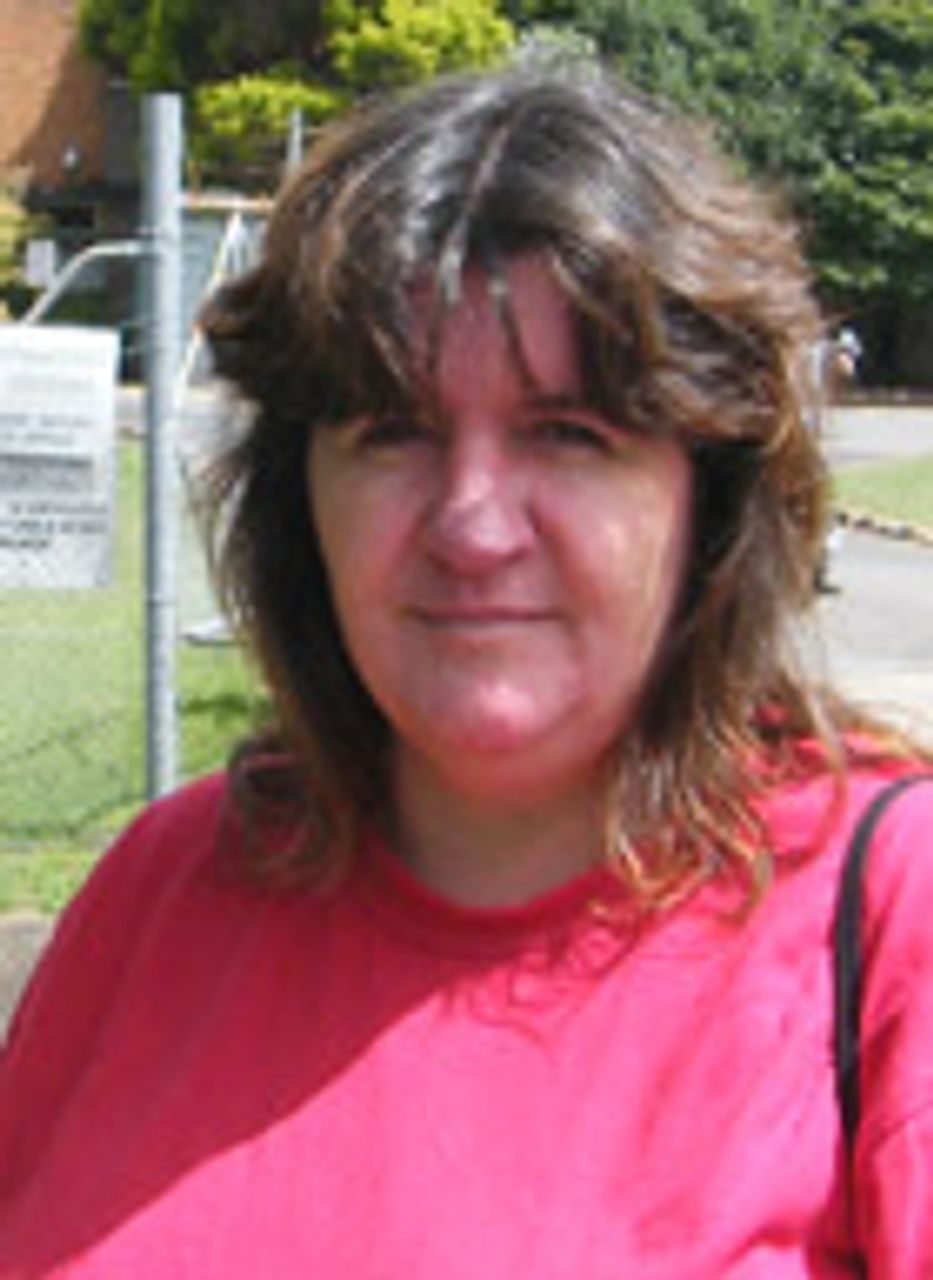 Donna Twomey
Donna TwomeyDonna Twomey told the WSWS: "We are stunned by what has happened. We were called to the canteen and told the plant would close but before that we were being told everything was OK. I am a single mother with two children. It will be almost impossible for me to find another job in the Cessnock area and I can't possibly live on what Centrelink pay people."
Lyn Wright said she had not heard that the workers at the company's plant in China were being sacked too until she read it in the WSWS leaflet ("Australian banks dictate jobs axe at Pacific Brands") distributed at the site that day. "It is not good that they are losing their jobs too. We thought that the work would be sent to China because the labour is cheaper there but it seems the same is happening there. What is happening is a real disaster. When they close these plants they will never reopen and the jobs will never come back."
Leonie Smith said: "We have been fighting for decades for this industry. We have been going to rallies for years and protesting about the state of the industry and demanding that governments do something to help us.
"Yet the Labor government pats itself on the back, telling us that they met with the company about making some kind of deal. Labor knew for at least three weeks that this closure was being planned but said nothing to us. They offered the company money again but Pacific has been getting government money for years so why are they still putting us off and closing plants?"
Asked if she had expected better conditions after the Howard government was replaced by Labor, Smith said: "No, I'm not that gullible. The political parties are all the same. Their main concern is looking after themselves and the companies."
Coolaroo
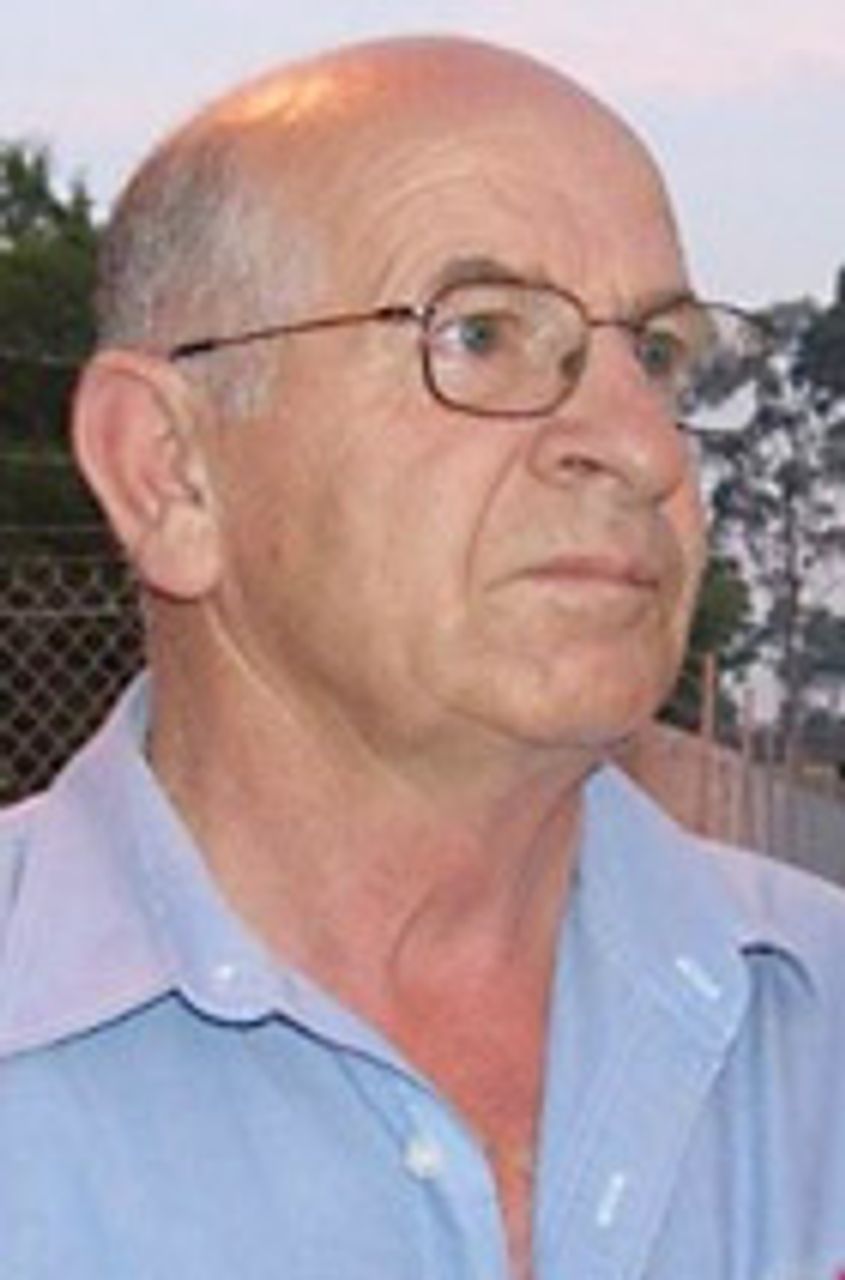 Steve Stojkovski
Steve Stojkovski At the Coolaroo plant in northern Melbourne, the company's own efforts to block discussion were exposed when security guards removed WSWS supporters who were giving out leaflets in the factory car park.
Steve Stojkovski, who has worked as a storeman at Coolaroo for nearly 40 years, told the WSWS that people were "totally shocked" when informed about the company's plans on Wednesday. "Most of the women are Vietnamese, Turkish or Indian. Some people just sat there with their heads in their hands—they couldn't move with shock.
"We have couples who have worked here for years. There is one man who is 70 who has worked here for 44 years. There are 70 people working here who are all over 60 years old. The union had a meeting and they said they would fight to the end. What the union is going to do is talk to the government."
Subscribe to the IWA-RFC Newsletter
Get email updates on workers’ struggles and a global perspective from the International Workers Alliance of Rank-and-File Committees.
